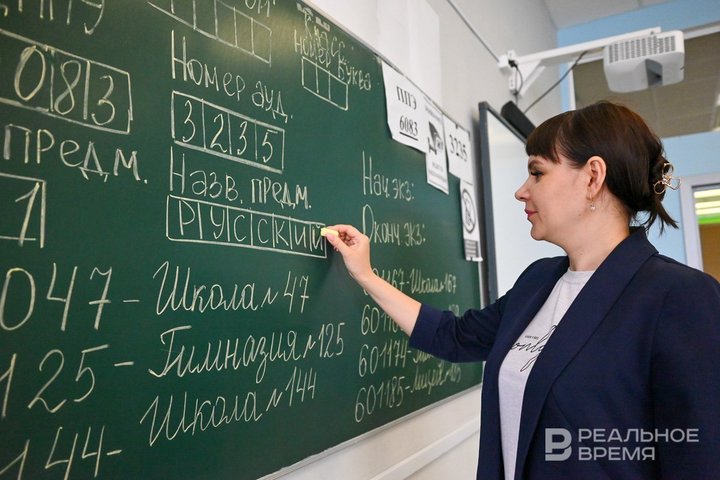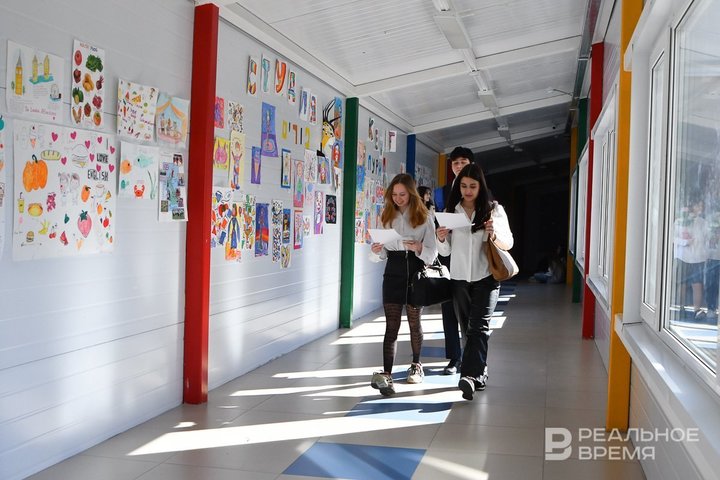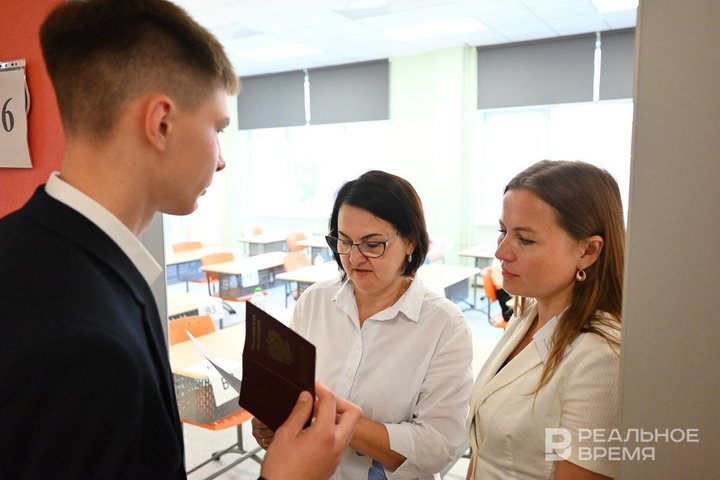Niyaz Gafiyatullin: ‘It’s like in sport, the first competition is scary, but in the second or third one, you already get used to it’

A lower result of a retaken Unified State Exam will not affect the future life of the graduate, while higher results can radically change the situation, says Director of the International School of Kazan Niyaz Gafiyatullin commenting on changes in the way of taking the Unified State Exam, which were introduced in this April. Then the Ministry of Education of Russia and Russia’s education watchdog signed orders to provide graduates with the opportunity to retake the Unified State Exam in one academic subject. On 4 and 5 July, students could retake exams, thereby cancelling their original results. Read about the summary of the Ministry of Education on this matter and how many graduates took advantage of the opportunity in a report of Realnoe Vremya.
Five graduates improved their results to 100 points
In Tatarstan, almost 2,000 graduates showed up to retake the Unified State Exam in one subject, and only a third of them registered on 5 July, the day two of the exams. The Ministry of Education of the republic did not tell Realnoe Vremya how many schoolchildren actually showed up there.
As the ministry explained to the newspaper, on 4 July, graduates sat the Unified State Exam in Russian, Physics, Chemistry, English, Social Studies and Computer Science at 13 examination points in Tatarstan. On day two, students retook specialised and basic level exams in Mathematics, Biology, History, Literature and oral English.

According to the ministry, Tatarstan schoolchildren often planned to retake Social Sciences — 520 people applied for this subject. Computer Sciences were second in popularity (511 students), and Russian language is third (250 graduates). The top 5 also included Chemistry (173) and specialized level of Mathematics (158).
On 15 July, Tatarstan graduates who took advantage of the opportunity to resit the Unified State Exam received their results. Three schoolchildren received 100 points in Computer Sciences, two more — in specialized Mathematics and Literature.
“We expected a much lower turnout”
As for statistics across Russia, 105,000 graduates in the country took the opportunity to resit the Unified State Exam according to the new rules. The head of Russia’s education watchdog Anzor Muzayev told RIA Novosti news agency about this.
“We expected a much lower turnout, but I was surprised when I saw how actively the schoolchildren decided to take advantage of this opportunity,” Muzayev noted. He also emphasised the participants’ awareness of exam resitting: almost all registered participants took part in the additional exam days.

The highest percentage of turnout was in such subjects as Computer Sciences (almost 97%), specialized Mathematics (almost 95%) and Social Studies (about 95%). In terms of the number of participants, the most popular subject to resit was Social Sciences — over 30,000 schoolchildren.
Muzayev also stated that the experiment of resitting the Unified State Exam was successful. According to him, in Russia they will continue to provide the opportunity to resit final exams.
“Risk-reward ratio”
According to Director of the International School of Kazan Niyaz Gafiyatullin, the resitting opportunity is good for children.
“Children resit examins because they understand that they can do better. In addition, taking a test for a second time isn't as scary. During the first attempt, they could have been nervous, made mistakes, and then they realised what they missed, could improve, do better. So since there was such an opportunity, the graduates took advantage of it and resat the test,” he told Realnoe Vremya’s correspondent.

As for the risks of retaking the exam, Gafiyatullin believes that a lower exam result will not affect the graduate’s future life, while higher results can radically change the situation.
“For example, a child wants to enter some university where the passing threshold is 60 points,” the director added. “Let’s say a child scored 55 points for a Unified State Exam. If the student scores 50 points after resitting the exam, this will not affect the admission, but a repeated result of 60 points can radically change the situation. I think the risk/reward balance leans towards the reward side.”
Speaking about the moral state of children, the speaker highlighted that sitting an exam for a second time is emotionally easier.
“Of course, there is jitters. There have been cases in our school when students became worried. It’s like in sport, the first competition is scary, but by the second or third, you get used to it, and the nervousness fades away, and the real knowledge and skills that you have mastered come to the fore. Children who have prepared and studied have nothing to fear,” he concluded.